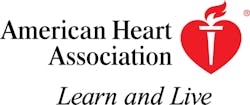The American Heart Association (AHA) continues to recommend people limit the amount of sodium consumed daily to no more than 1500 mg in response to a review of an article, “Reduced Dietary Salt for the Prevention of Cardiovascular Disease: A Meta-Analysis of Randomized, Controlled Trials (Cochrane Review),” published in the July 6, 2011 issue of the American Journal of Hypertension. The association said the article may add to the confusion about salt intake because it reports that less sodium didn’t equal a lower risk of heart disease or stroke when the results of seven different studies were pooled.
However, AHA notes that a closer look at the article reveals some interesting points that may help put the conclusions in perspective:
- The pooled studies in the review article included mostly middle-aged white or Asian participants, yet high blood pressure disproportionately affects African-Americans and older Americans.
- The results of the seven studies may not apply to the U.S. population because some of the studies were conducted in Taiwan, Australia and Italy.
- The review reached its conclusions based on results ranging from six to 71 months of study. High blood pressure and the heart disease and stroke risk that follows develop slowly, so this time period is not long enough to draw conclusions.
- All of the studies analyzed the amount of sodium the participants were consuming through diet diaries, which may not be as reliable as measuring urinary salt excretion to quantitatively assess sodium intake.
- In addition, the studies included a mixed population including those with heart failure, which clouds the picture as results on these patients are not relevant or able to be extrapolated to the general population. There was a strong trend of fewer deaths in individuals with normal blood pressure and low sodium intake that did not reach statistical significance, largely due to the small study size and the number of events.
The American Heart Association strongly recommends that people – whether or not they have high blood pressure – limit the amount of sodium consumed daily to no more than 1500 mg. This recommendation is based on an expert consensus and published research which supports the need to reduce sodium as an integral component of public health efforts to prevent heart disease and stroke.
Nine out of ten Americans will develop high blood pressure in their lifetime. Reducing sodium now – even for people who currently have normal blood pressure – can reap enormous long-term benefits by reducing the risk for developing high blood pressure, and helping those with high blood pressure manage their condition more effectively.





